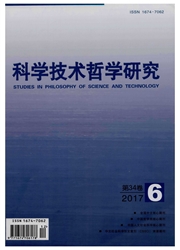

 中文摘要:
中文摘要:
知识表征由个体性向社会性转向的过程中,环境因素的逐渐渗透体现了由内在主义向外在主义过渡的知识观。延展认知的提出在认知科学中引起了关于环境在知识表征过程能否成为心智载体的激烈讨论,延展心智观主张,知识表征需要借助外在的环境与工具才能完成,心智可以延展到大脑之外的物理世界,认知系统中的环境也具有心智。反对者则围绕着环境的耦合、功能地位等对其进行反驳。这种争论肯定了环境因素在知识表征过程中的地位与影响的同时,也反映了对认知本质理解的不明确性。
 英文摘要:
英文摘要:
In the process of knowledge representation from the perspective of individual to the society, the gradual penetrating of environmental factors reflects the transition of knowledge view from internalism to externalism. Among them, the extended cognition in cognitive science led to a heated discussion about whether the environment can become the mental carrier in the process of knowledge representation. The extended mind claims that the process of knowledge representation can be accomplished only with resort to the external tools and environment, that the mind can extend to the physical world beyond the brain and that the environment is also of the nature of a mind. However, the opponents don' t agree with the above-stated views, refuting it with the view of the environment' s coupling and function. The argument affirms the status and influence of environmental factors in the process of knowledge representation, which also reveals the ambiguous nature of our understanding about the cognitive essence.
 同期刊论文项目
同期刊论文项目
 同项目期刊论文
同项目期刊论文
 期刊信息
期刊信息
